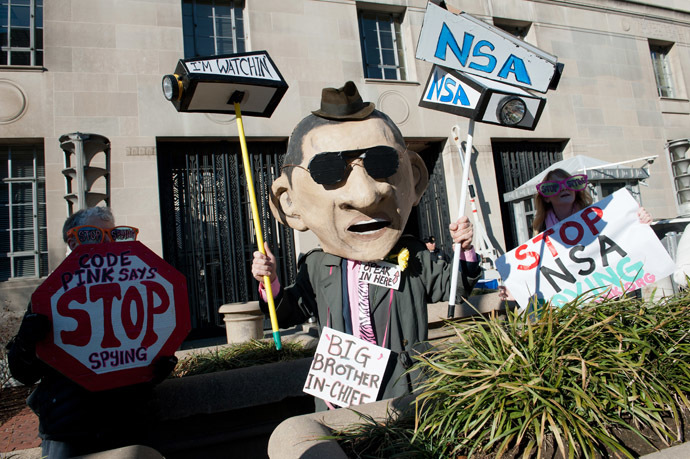‘US government prefers intimidating spy system’

Despite wide support for the “USA Freedom Act” the majority of right-wing US politicians in the Congress choose a spying system, which arouses fear and ire among Americans, James Petras, formerly of Binghamton University, told RT.
The US Senate has blocked a bill that was supposed to end bulk collection of American phone records by the NSA (National Security Agency) this week. The “USA Freedom Act” failed to get the 60 votes required to pass into law. The privacy issue was first raised in the Senate last year after whistleblower Edward Snowden revealed that the US secret services were collecting private information.
RT:Snowden’s leaks were supposed to change the world, the way we see spying? Was there hope that this bill could have changed things if it went through?
James Petras: Experts and people knowledgeable about the issue thought it was a very small change. But one in the general direction, because as of now, there are hundreds of millions of Americans whose telephones, faxes, and e-mails are under surveillance. So the idea that it is totally out of control has aroused the ire of a good deal of the American public. I would say the great majority of the US public is very fearful of the role of the NSA and spying on its communications whether lawful exercises of political opinion or whether the intimate conversations with friends or partners. I think the idea of this modification had very broad support. Unfortunately, the right-wing majority today in the Congress prefer a blanket- spy system which can intimidate the great majority of Americans from expressing their views in public.

RT:Polls show that more than 70 percent of Americans are concerned that the government may be accessing their personal information. Is that going to affect the debate when we almost don’t have any news coverage of how important this issue is?
JP: The media have been essentially playing a very conservative role all along. Despite the fact that some journalists, for example, a principle journalist at the New York Times is under investigation, and other whistleblowers have been fired from their jobs. The matter is that the media themselves have played a prominent role in censorship and in turning over information to the government. So the idea of an independent and free press has been cast in a very negative light at this time because the media owners are very much tied into the right- wing wave that is coming across the US legislature and perhaps heading for the presidency.
RT:Obama’s administration supported this legislation very strongly. But some did believe that it was doomed from the beginning. What do you think?
JP: I think that the Obama presidency has done a very poor job on acting on behalf of restricting the NSA. For a long time they gave it a 100 percent endorsement. And under pressure now they are trying to rein back now some of the most extreme forms of intrusion. However there has nothing been planned as far as educating the public or pressuring the Congress to go ahead and approve some modifications on NSA’s spying.
The statements, views and opinions expressed in this column are solely those of the author and do not necessarily represent those of RT.
The statements, views and opinions expressed in this column are solely those of the author and do not necessarily represent those of RT.












